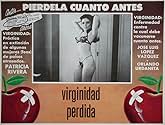Juan suffers serious economic problems after the arrival of democracy in Spain.Juan suffers serious economic problems after the arrival of democracy in Spain.Juan suffers serious economic problems after the arrival of democracy in Spain.
Photos
José Luis López Vázquez
- Juan Gutiérrez de la Macorra
- (as J.L. Lopez Vazquez)
Amparo Soler Leal
- Leonor
- (as A. Soler Leal)
María Luisa Ponte
- Adriana
- (as Mª Luisa Ponte)
Luis Calderón
- Tío Jaime
- (as Luis Calderón)
Isabel María Pérez
- Virtudes
- (as Isabel Mª Perez)
Mery Leyva
- Benigna
- (as Mary Leyva)
Storyline
Did you know
- ConnectionsReferences Black Emanuelle 2 (1976)
- SoundtracksEstán cambiando los tiempos
Written and Performed by Luis Pastor
Featured review
First of all, sorry for my English, it is my second language. This movie reflects a way of living and thinking of an upper middle class Spanish family few years after dead, in 1975, of dictator Franco. It is a specific Spanish old fashioned style (so called costumbrism) of ironic comedy about realistic people with a lot of satiric moments.
The main topics of this film are: superiority of certain social classes, assuming that laws are not for them; lying and abusing as a way of living; double religious moral and sexual repression; economic intrigues as a way of obtaining personal benefits. In the movie, all those topics happened in a post-dictatorship society, although they are pretty alive in the current democratic societies. What most impacted me is this fact, how much parallelism you can find in current societies.
With the eyes of the current viewer, this movie has two characteristics that complicate the assessment in order to be consider it a good movie: it has very local aspects of the old Spanish society, which maybe misunderstood if you are not a middle-age Spaniard; it has an over-actuation style of characters that belongs to an old school. But if you are interested in those aspects, is it worth watching the movie. It will make you laugh a lot.
The main topics of this film are: superiority of certain social classes, assuming that laws are not for them; lying and abusing as a way of living; double religious moral and sexual repression; economic intrigues as a way of obtaining personal benefits. In the movie, all those topics happened in a post-dictatorship society, although they are pretty alive in the current democratic societies. What most impacted me is this fact, how much parallelism you can find in current societies.
With the eyes of the current viewer, this movie has two characteristics that complicate the assessment in order to be consider it a good movie: it has very local aspects of the old Spanish society, which maybe misunderstood if you are not a middle-age Spaniard; it has an over-actuation style of characters that belongs to an old school. But if you are interested in those aspects, is it worth watching the movie. It will make you laugh a lot.
Details
- Release date
- Countries of origin
- Language
- Also known as
- The Fascist, the Blessed and Her Deflowered Daughter
- Filming locations
- Production companies
- See more company credits at IMDbPro
Contribute to this page
Suggest an edit or add missing content

Top Gap
By what name was El fascista, la beata y su hija desvirgada (1979) officially released in Canada in English?
Answer





